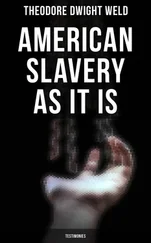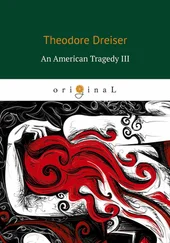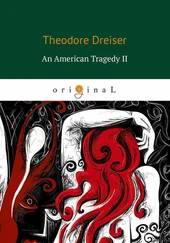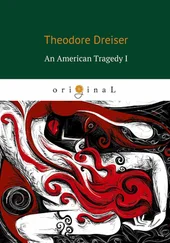Theodore Dreiser - An American Tragedy
Здесь есть возможность читать онлайн «Theodore Dreiser - An American Tragedy» — ознакомительный отрывок электронной книги совершенно бесплатно, а после прочтения отрывка купить полную версию. В некоторых случаях можно слушать аудио, скачать через торрент в формате fb2 и присутствует краткое содержание. Жанр: unrecognised, на английском языке. Описание произведения, (предисловие) а так же отзывы посетителей доступны на портале библиотеки ЛибКат.
- Название:An American Tragedy
- Автор:
- Жанр:
- Год:неизвестен
- ISBN:нет данных
- Рейтинг книги:5 / 5. Голосов: 1
-
Избранное:Добавить в избранное
- Отзывы:
-
Ваша оценка:
- 100
- 1
- 2
- 3
- 4
- 5
An American Tragedy: краткое содержание, описание и аннотация
Предлагаем к чтению аннотацию, описание, краткое содержание или предисловие (зависит от того, что написал сам автор книги «An American Tragedy»). Если вы не нашли необходимую информацию о книге — напишите в комментариях, мы постараемся отыскать её.
An American Tragedy — читать онлайн ознакомительный отрывок
Ниже представлен текст книги, разбитый по страницам. Система сохранения места последней прочитанной страницы, позволяет с удобством читать онлайн бесплатно книгу «An American Tragedy», без необходимости каждый раз заново искать на чём Вы остановились. Поставьте закладку, и сможете в любой момент перейти на страницу, на которой закончили чтение.
Интервал:
Закладка:
To-night, walking up the great street with his sisters and brother, he wished that they need not do this any more, or at least that he need not be a part of it. Other boys did not do such things, and besides, somehow it seemed shabby and even degrading. On more than one occasion, before he had been taken on the street in this fashion, other boys had called to him and made fun of his father, because he was always publicly emphasizing his religious beliefs or convictions. Thus in one neighborhood in which they had lived, when he was but a child of seven, his father, having always preluded every conversation with "Praise the Lord," he heard boys call "Here comes old Praise-the-Lord Griffiths." Or they would call out after him "Hey, you're the fellow whose sister plays the organ. Is there anything else she can play?"
"What does he always want to go around saying, 'Praise the Lord' for? Other people don't do it."
It was that old mass yearning for a likeness in all things that troubled them, and him. Neither his father nor his mother was like other people, because they were always making so much of religion, and now at last they were making a business of it.
On this night in this great street with its cars and crowds and tall buildings, he felt ashamed, dragged out of normal life, to be made a show and jest of. The handsome automobiles that sped by, the loitering pedestrians moving off to what interests and comforts he could only surmise; the gay pairs of young people, laughing and jesting and the "kids" staring, all troubled him with a sense of something different, better, more beautiful than his, or rather their life.
And now units of this vagrom and unstable street throng, which was forever shifting and changing about them, seemed to sense the psychologic error of all this in so far as these children were concerned, for they would nudge one another, the more sophisticated and indifferent lifting an eyebrow and smiling contemptuously, the more sympathetic or experienced commenting on the useless presence of these children.
"I see these people around here nearly every night now—two or three times a week, anyhow," this from a young clerk who had just met his girl and was escorting her toward a restaurant. "They're just working some religious dodge or other, I guess."
"That oldest boy don't wanta be here. He feels outa place, I can see that. It ain't right to make a kid like that come out unless he wants to. He can't understand all this stuff, anyhow." This from an idler and loafer of about forty, one of those odd hangers-on about the commercial heart of a city, addressing a pausing and seemingly amiable stranger.
"Yeh, I guess that's so," the other assented, taking in the peculiar cast of the boy's head and face. In view of the uneasy and self-conscious expression upon the face whenever it was lifted, one might have intelligently suggested that it was a little unkind as well as idle to thus publicly force upon a temperament as yet unfitted to absorb their import, religious and psychic services best suited to reflective temperaments of maturer years.
Yet so it was.
As for the remainder of the family, both the youngest girl and boy were too small to really understand much of what it was all about or to care. The eldest girl at the organ appeared not so much to mind, as to enjoy the attention and comment her presence and singing evoked, for more than once, not only strangers, but her mother and father, had assured her that she had an appealing and compelling voice, which was only partially true. It was not a good voice. They did not really understand music. Physically, she was of a pale, emasculate and unimportant structure, with no real mental force or depth, and was easily made to feel that this was an excellent field in which to distinguish herself and attract a little attention. As for the parents, they were determined upon spiritualizing the world as much as possible, and, once the hymn was concluded, the father launched into one of those hackneyed descriptions of the delights of a release, via self-realization of the mercy of God and the love of Christ and the will of God toward sinners, from the burdensome cares of an evil conscience.
"All men are sinners in the light of the Lord," he declared. "Unless they repent, unless they accept Christ, His love and forgiveness of them, they can never know the happiness of being spiritually whole and clean. Oh, my friends! If you could but know the peace and content that comes with the knowledge, the inward understanding, that Christ lived and died for you and that He walks with you every day and hour, by light and by dark, at dawn and at dusk, to keep and strengthen you for the tasks and cares of the world that are ever before you. Oh, the snares and pitfalls that beset us all! And then the soothing realization that Christ is ever with us, to counsel, to aid, to hearten, to bind up our wounds and make us whole! Oh, the peace, the satisfaction, the comfort, the glory of that!"
"Amen!" asseverated his wife, and the daughter, Hester, or Esta, as she was called by the family, moved by the need of as much public support as possible for all of them—echoed it after her.
Clyde, the eldest boy, and the two younger children merely gazed at the ground, or occasionally at their father, with a feeling that possibly it was all true and important, yet somehow not as significant or inviting as some of the other things which life held. They heard so much of this, and to their young and eager minds life was made for something more than street and mission hall protestations of this sort.
Finally, after a second hymn and an address by Mrs. Griffiths, during which she took occasion to refer to the mission work jointly conducted by them in a near-by street, and their services to the cause of Christ in general, a third hymn was indulged in, and then some tracts describing the mission rescue work being distributed, such voluntary gifts as were forthcoming were taken up by Asa—the father. The small organ was closed, the camp chair folded up and given to Clyde, the Bible and hymn books picked up by Mrs. Griffiths, and with the organ supported by a leather strap passed over the shoulder of Griffiths, senior, the missionward march was taken up.
During all this time Clyde was saying to himself that he did not wish to do this any more, that he and his parents looked foolish and less than normal—"cheap" was the word he would have used if he could have brought himself to express his full measure of resentment at being compelled to participate in this way—and that he would not do it any more if he could help. What good did it do them to have him along? His life should not be like this. Other boys did not have to do as he did. He meditated now more determinedly than ever a rebellion by which he would rid himself of the need of going out in this way. Let his elder sister go if she chose; she liked it. His younger sister and brother might be too young to care. But he—
Читать дальшеИнтервал:
Закладка:
Похожие книги на «An American Tragedy»
Представляем Вашему вниманию похожие книги на «An American Tragedy» списком для выбора. Мы отобрали схожую по названию и смыслу литературу в надежде предоставить читателям больше вариантов отыскать новые, интересные, ещё непрочитанные произведения.
Обсуждение, отзывы о книге «An American Tragedy» и просто собственные мнения читателей. Оставьте ваши комментарии, напишите, что Вы думаете о произведении, его смысле или главных героях. Укажите что конкретно понравилось, а что нет, и почему Вы так считаете.










